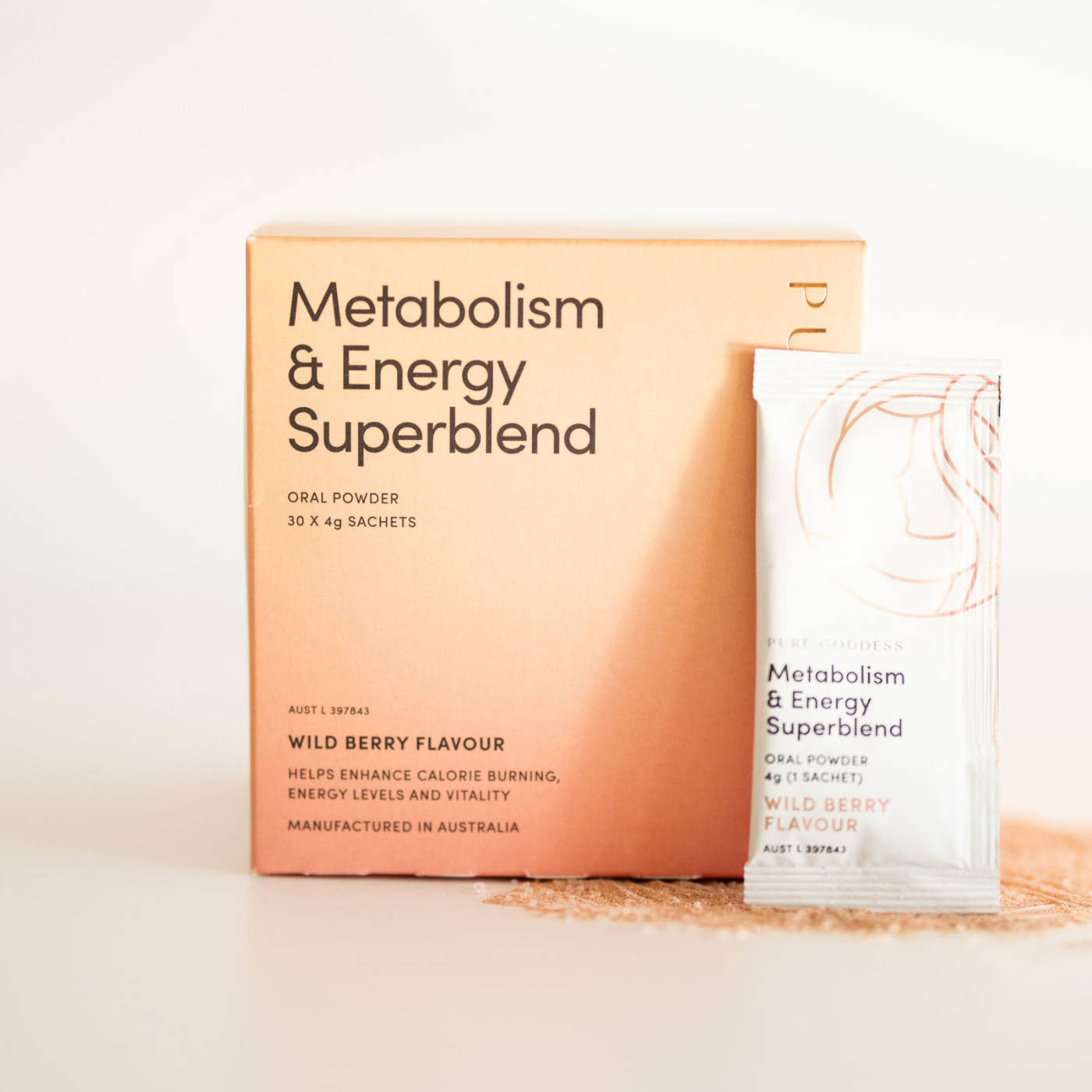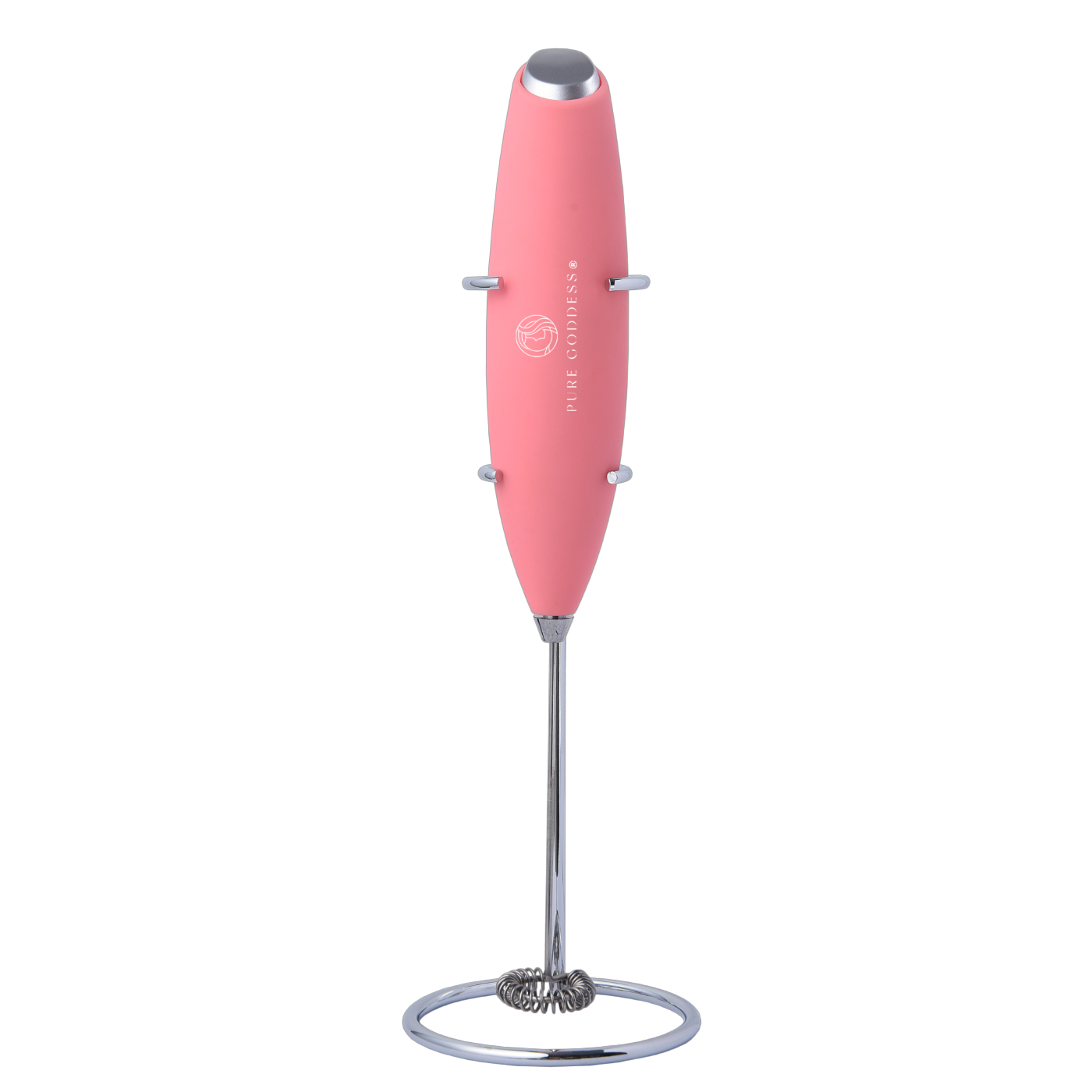Article: 7 Solutions for Insomnia in Perimenopause

7 Solutions for Insomnia in Perimenopause
Insomnia during perimenopause is a common struggle for many women, we at Goddess HQ are no exception. It's frustrating lying awake, watching the clock while hormones wreak havoc. Let's discover how you can overcome insomnia in perimenopause.
What causes insomnia in perimenopause?
During perimenopause, the body experiences significant fluctuations in hormone levels that can have a profound impact on our health. Hormones serve as chemical messengers and are responsible for regulating essential bodily functions such as metabolism, menstrual cycles and sleep patterns.
Take melatonin, for example. Melatonin is a hormone naturally produced by the body and released into the bloodstream to regulate the sleep-wake cycle. It helps promote natural relaxation and signals to the body that it's time to sleep.
However, as we progress through perimenopause, the production of melatonin tends to decrease gradually. This decline in melatonin levels can disrupt the body's ability to maintain a regular sleep-wake cycle, leading to sleep disturbances and insomnia.
Additionally, high cortisol levels, known as the stress hormone can impact many women during perimenopause by disrupting sleep rhythms. High cortisol at bedtime interferes with restorative REM sleep, leading to difficulty staying asleep. This can also cause racing thoughts, heart palpitations, and panic attacks, leaving you feeling "tired but wired."
How to Naturally Balance Hormones and Reduce Cortisol
Stress relief
Managing stress is crucial for maintaining hormone balance and overall well-being. One effective strategy is to prioritise stress management by adopting healthy coping mechanisms.
This includes learning to say no to unnecessary obligations and setting boundaries to prevent overwhelm. Be kind to yourself. Accepting your imperfections and understanding that perfection isn't achievable can help relieve stress and lessen pressure on yourself.
Start practicing mindfulness, meditation, or deep breathing exercises and add them into your daily routine can significantly promote relaxation and lower cortisol levels naturally. These practices help shift the body from a state of heightened stress response to a more relaxed state, supporting hormone balance and improving overall mental and emotional health.
Mindfulness involves focusing on the present moment without judgment, which can help reduce anxiety and stress. Meditation techniques can calm the mind and promote a sense of inner peace. Deep breathing exercises, such as belly breathing or progressive muscle relaxation, can activate the body's relaxation response and counteract the effects of stress.
By making stress management a priority and incorporating these techniques into your daily life, you can effectively lower cortisol levels, support hormone balance, improve your overall quality of life and you will start to feel all ‘Zen’ (Calm).

Exercise Regularly
Incorporating exercise into your routine can have numerous health benefits, including promoting hormone balance and enhancing sleep quality. However, it's essential to be mindful of the timing and intensity of your workouts, particularly when it comes to sleep.
While staying active is encouraged, it's best to avoid vigorous exercises close to bedtime, as this may interfere with your ability to relax and fall asleep. Instead, opt for moderate-intensity activities such as walking, pilates or yoga earlier in the day. These exercises can help regulate hormone levels and contribute to better sleep patterns, ultimately supporting your overall health and fitness goals.
Cut Back on Caffeine and Alcohol
To maintain healthy hormone levels, it's important to reduce your intake of caffeine and alcohol. These substances can raise cortisol levels, the stress hormone, and will throw off your body's natural balance.
Consider switching to decaf drinks and limiting your alcohol intake, particularly in the evening. This can help improve your sleep quality and lower cortisol levels, supporting overall hormonal health. By moderating your consumption of caffeine and alcohol, you feel much more energised balanced.
Unplug before bed
Take time to unwind before going to bed by turning off electronic devices at least an hour before bedtime. The light from screens like phones and computers can disturb your sleep hormone production. Instead, try calming activities like reading, meditation or listening to music to help your body relax and get ready for a good night's sleep. Unplugging before bedtime can help you sleep better and feel more rested.

Consider Magnesium Supplements
Adding magnesium supplements to your daily routine, like magnesium glycinate, can help promote muscle relaxation and reduce cortisol levels naturally.
Magnesium promotes relaxation by acting as a natural muscle relaxant and by regulating neurotransmitters in the brain. Additionally, magnesium plays a crucial role in regulating the function of the parasympathetic nervous system, which is responsible for promoting relaxation and reducing stress.
Don't skip meals
Diet and nutrition can influence the quality of your sleep. Eating regular nutrient rich protein filled meals is also crucial for keeping your blood sugar levels stable throughout the day.
Skipping meals or fasting for too long can cause your body to release cortisol. This increases stress and you will continue to have those 3pm afternoon slumps that leave you so tired you can hardly function. However, come bedtime you seem to find a second wind and you can't fall asleep naturally so eating a healthy balanced diet can all help you to get a good night's sleep.
As we age we often need to introduce supplements into our daily routine to help us function at our best, support healthy blood sugar levels, increase naturally energy levels and curb unhealthy cravings. Our best selling Metabolism and Energy Superblend is a perfect addition to your lifestyle as it ticks all of those important boxes to help you get your health back on track.
It may be tempting to resort to over-the-counter sleep aids (they contain antihistamines) or prescription sleep medications. But these don’t treat the root cause of insomnia and may make you dependent. Over time, they work less effectively… which means you need higher and higher doses to do the job.
If you are still struggling see your Health professional.
Hormone Replacement Therapy
Hormone replacement therapy (HRT) can help alleviate insomnia in perimenopausal women by addressing the hormonal fluctuations that often contribute to sleep disturbances during this stage of life. Perimenopause is characterized by fluctuating hormone levels, particularly estrogen and progesterone, which can disrupt sleep patterns. Here's how HRT can help:
-
Balancing Hormone Levels: HRT aims to supplement declining hormone levels, particularly estrogen and progesterone, which can become imbalanced during perimenopause. By restoring these hormones to more optimal levels, HRT can help regulate sleep-wake cycles and promote better overall sleep quality.
-
Alleviating Night Sweats and Hot Flashes: Night sweats and hot flashes are common symptoms of perimenopause that can significantly disrupt sleep. Estrogen therapy, a component of HRT, can help reduce the frequency and severity of these symptoms, leading to improved sleep by minimizing interruptions caused by nighttime sweating and discomfort.
-
Addressing Mood Swings and Anxiety: Hormonal fluctuations during perimenopause can contribute to mood swings, anxiety, and irritability, which may also disrupt sleep. Estrogen has been shown to have mood-stabilizing effects, and by addressing these emotional symptoms, HRT can indirectly improve sleep by promoting a calmer mental state conducive to restful sleep.
-
Protecting Against Osteoporosis: Some types of HRT, particularly those containing estrogen, can help protect against bone loss, which becomes a concern for many women during perimenopause and beyond. Improved bone health can reduce the risk of pain and discomfort that may interfere with sleep.
-
Enhancing Sleep Architecture: Estrogen has been shown to influence sleep architecture, including sleep stages and sleep continuity. By supplementing estrogen levels, HRT may help stabilize sleep patterns and promote deeper, more restorative sleep.
It's important to note that while HRT can be effective for managing insomnia and other symptoms of perimenopause, it's not suitable for everyone. Potential risks and benefits should be carefully considered, and individuals should discuss their personal medical history, risk factors, and preferences with their healthcare provider to determine whether HRT is an appropriate option for them. Additionally, lifestyle modifications and other non-pharmacological interventions may also play a role in managing insomnia during perimenopause.
There is nothing worse than trying to exist on virtually no sleep, lack of sleep can affect every area of your life and health. Many women may experience periods of insomnia occasionally, but insomnia linked to perimenopause and menopause can persist for extended durations if not effectively managed. If you have tried all the natural strategies and over the counter remedies but are still struggling, then it may be time to talk to your health care provider to find a solution.



Leave a comment
This site is protected by reCAPTCHA and the Google Privacy Policy and Terms of Service apply.